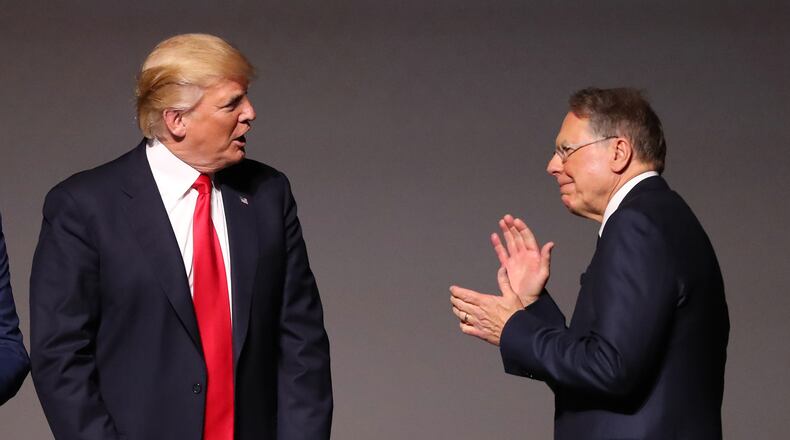President Donald Trump may yet rejuvenate coal mining or bring manufacturing jobs back to the United States. But his election already seems to have been detrimental to at least one economic sector: the gun industry.
With the new president firmly aligned with gun-rights advocates, the FBI performed 9 percent fewer firearms background checks in the first half of this year compared to January through June 2016, according to newly released data.
In Georgia, the decrease was even greater. From January to June, the FBI performed about 269,000 background checks in Georgia – 11 percent fewer than the 302,000 it logged in the first half of 2016.
Background checks don’t precisely correlate to the pace of gun sales. Some states periodically request new checks on people who bought guns in years past. Generally, though, the checks are a strong indicator of the robustness of the gun market, often driven by calls for new gun-control laws.
In early 2013, for instance, requests for background checks soared after President Barack Obama proposed firearms restrictions in response to a mass shooting at a Connecticut elementary school. Similarly, in the last half of 2016, the number of background checks hit near-record levels as Democratic nominee Hillary Clinton – viewed as unfriendly to gun rights – seemed headed for the presidency.
Trump and many of his supporters repeatedly suggested Clinton would try to outlaw gun ownership. The National Rifle Association, which endorsed Trump, ran television ads claiming (falsely, according to Politifact) that Clinton "doesn't believe in your right to keep a gun at home for self-defense."
Trump himself even seemed to suggest violence against Clinton to stop her from regulating guns.
“Hillary wants to abolish – essentially abolish the Second Amendment,” Trump said at a campaign rally last August. “By the way, if she gets to pick, if she gets to pick her judges, nothing you can do, folks.”
Then he added: “Although, the Second Amendment people, maybe there is, I don’t know.”
Trump, who once said he could shoot someone on Fifth Avenue in New York and still not lose political support, seems unlikely to promote the kind of legislation that stimulates gun sales.
However, his son Donald Jr. has emerged as an advocate for a bill that would loosen the historically tight federal restrictions on the sale of firearms silencers.
Backers frame the proposal as a health care issue; they now refer to the bill as the "Hearing Protection Act." Gun-control advocates say the loudness of gunshots actually saves lives by warning bystanders, not to mention police officers, of danger.
The White House has not said whether the president supports the bill. For the moment, at least, Trump's son seems to be occupied by other matters.
About the Author
The Latest
Featured



